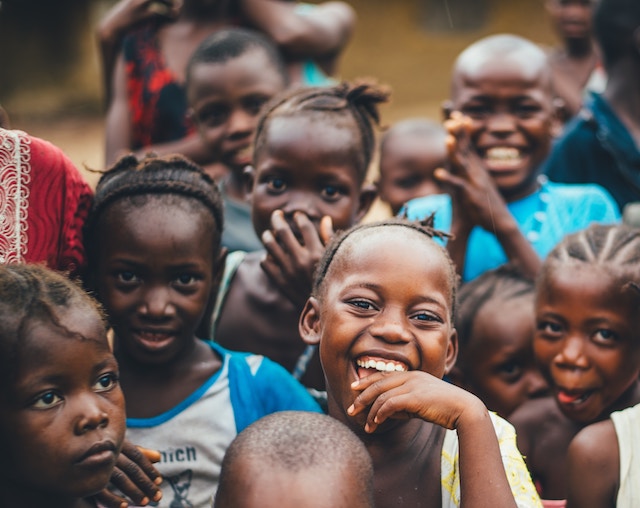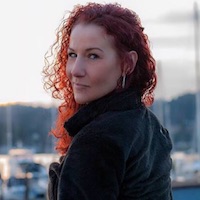Let’s be clear: it’s important to be of service. But that service needs to be genuinely helpful, reaching beyond preconceptions to sustainable reality. This article is offered as one author’s experience and opinion. We welcome constructive dialogue from Morgan or anyone, with any view, as long as it’s focused on how to do no harm, and be of benefit. Click here if so inspired. ~ Waylon, ed.
“One of my favorite things to do here [in Uganda] is love on these kiddos, who don’t receive very much human comforting contact, and also get loved on in return.” ~ Morgan, yogini Instagram star.
“Africa Needs Saving”—or is it the Other Way Around?
You’ve probably scrolled past a photo of white savior complex on social media today.
With the recent rise in volunteerism photographs circulating social media, and more specifically Instagram, one might be shocked to discover that although there is plenty of information out there about the meaning of “white savior complex,” and the photographs that depict it, we are still seeing an overabundance of…problematic photos and captions featuring white people as the hero and depicting the local residents as caricatures.
There is a Western narrative that some charities and missionaries would like us to believe in regards to volunteerism. They tell us, seemingly factually, that “Africa needs saving”—and we reinforce that narrative with our trips and the photos that follow.
It doesn’t take very long to spot the average “white savior” in pictures posted and shared on social media platforms like Instagram, often accompanied by the hashtags #Uganda or #Africa, and finished off with all the appropriate social media accoutrements.
Your average white savior social media post might look something like this:
A picture featuring a white woman or man as the protagonist, surrounded by unnamed, usually black children.
The post might state something basic in the caption about how the volunteers are bringing unprecedented joy into the lives of African children, and how healing it is for themselves.
It might be a picture of a child with an obvious medical condition, accompanied by a caption stating their ailments, and how the volunteers are helping them.
These photographs are also often used to entice more volunteers to enroll by featuring the charity, and promising to offer unparalleled service to a community portrayed as helpless and desperate.
The common theme is the white foreigner being held in a position of power over the local community, who are depicted as a suffering collective.
These types of pictures can exploit local residents in different countries and communities in Africa for “likes” and words of praise from their online followers.
These types of posts push the narrative that Africa needs saving—which, in case we’ve forgotten, is an entire continent—and that the white man or woman are the only ones who can do it.
While most volunteers travel to countries in Africa, or other countries with similarly perpetuated narratives, with sincere intentions, many of them leave with those very same photographs.
And while they may be drawing attention to the situation by posting them to their social media accounts, they are often leaving behind a temporary band aid without creating or training the community through a plan of sustainability.
The question then becomes, are these types of volunteer trips and social media posts doing more harm than we are good?
Teju Cole says it best:
“The white savior industrial complex is not about justice. It’s about having a big emotional experience that validates privilege.”
Essentially, this behavior creates a business with poverty by commercializing it and packaging it as a service-oriented vacation. These quick fixes and short-term volunteer trips (the average length of which is two weeks) can be pernicious and emotionally harmful to the children by creating attachments that are filled only briefly. In the meantime, charities are enlisting more and more people to volunteer without having to adhere to any sort of regulations or laws regarding the protection of the individuals receiving aid against being exploited through advertisement by the charity.
How can such a common practice of volunteerism be regulated to ensure that the identities of residents receiving aid are protected versus exploited on social media?
While “cultural training” is an expectation and requirement for most charities, education in regards to exploitation and the effects of “white savior” complex are not. It is quite shocking that volunteers are permitted and able to take photographs at their own leisure, while they are supposedly working to provide aid and supplies to local residents.
A possible solution could be to require education regarding exploitation and the “white savior” complex along with the volunteer program’s cultural training. Incoming volunteers could sign a contract promising no invasive and exploitive pictures will be taken of the communities in which they are volunteering.
In the United States, regulations are in place to uphold accountability for invasive actions regarding the medical realm. In the U.S., there is the HIPAA law, which stands for Health Insurance Portability and Accountability Act. HIPAA is legislation that ensures data privacy and security provisions for protecting an individual’s medical information. Violating HIPAA in the U.S. can get an individual into some serious heat—the punishment is anywhere from $100 up to $1.5 million in fines accompanied by up to 10 years of imprisonment.
Why aren’t these laws upheld when volunteering in other countries and nations abroad?
Even still, monitoring the propagation of the white savior narrative can be more difficult to nail down, as it can sometimes be disguised or misunderstood.
Before embarking on a volunteer trip with a church or charity to provide aid to a distant country, several questions should be considered long before their suitcases are packed:
If you couldn’t take a camera to document your time there, would you still go?
Are you there to help others, or are you there to heal yourself?
Have you studied the location’s culture, and learned what is and is not appropriate to, wear, say, and generally do there?
Do you have any skills that are pertinent to any of the jobs for which that you will be performing while volunteering?
Does the charity you are collaborating with have long-term goals of local independence and sustainability?
If there are no set regulations to uphold accountability of exploitation and the pushing of the narrative that Africa needs saving by a bunch of white people, we cannot ensure that truly impactful, good work will be done.
~
Bonus:











Read 23 comments and reply